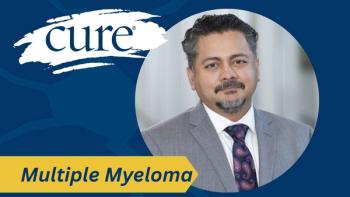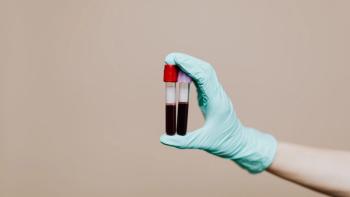
CAR-T Cell Therapy That Targets Two Proteins May Help Patients with Multiple Myeloma
A dual-targeted chimeric antigen receptor-T cell therapy showed a more than 90% overall response rate in patients with relapsed or refractory disease.
Patients with relapsed or refractory multiple myeloma may have new hope in a bispecific chimeric antigen receptor (CAR)-T cell therapy, according to early clinical trial findings presented during the 2019 American Society of Hematology Annual Meeting.
Researchers in China studied the effectiveness of a CAR-T cell therapy that targets CD38 and B-cell maturation antigen, two proteins found on the surface of plasma cells — these cells are affected by multiple myeloma. “Our thinking was that targeting both of these proteins would improve treatment efficacy without increasing toxicity, and induce deeper, more durable remissions,” study author Dr. Yu Hu, of Union Hospital, Huazhong University of Science and Technology in Wuhan, China, said in a press release.
The phase 1 study included 22 patients — average age was 59 — whose disease had relapsed or who stopped responding to treatment. They also had been given at least two prior treatment regimens, including a proteasome inhibitor and an immunomodulatory agent. Ten patients had genetic abnormalities and nine extramedullary tumors, which are located within the dural sac — the tube that surrounds the spinal cord.
Patients received three days of chemotherapy as a conditioning regimen before having the genetically engineered T cells infused back into their body. Each patient received the dual-targeted CAR-T cells and were divided into five groups, with each group receiving a higher dose than the previous one.
Twenty patients (90.9%) showed an overall response and 18 patients (90.9%) also reached minimal residual disease (MRD)-negative status, meaning each patient had less than one myeloma cell per million bone marrow cells following treatment. Achieving MRD-negative status may also mean they are less likely to experience a relapse.
Although median progression-free survival (PFS), or the time a patient’s disease does not worsen, was not reached, PFS at nine months was just over 78%. The researchers also saw extramedullary tumors disappear in eight of the nine patients.
Hematological side effects were seen in all the patients but were gone within the first month after infusion. Cytokine release syndrome (CRS), or the rapid release of cytokines into the blood following reinfusion of the engineered T cells, occurred in 20 patients. Six patients had a more severe case and were treated with Actemra (tocilizumab), noted the researchers.
In addition to CRS, neurotoxicity can occur in patients treated with CAR-T cell therapy. However, in this study no one experienced this side effect.
“With this dual-targeted CAR T-cell therapy, we have demonstrated a high response rate, especially a higher rate and longer duration of stringent complete response, compared with other therapies, as well as effective elimination of extramedullary lesions, with no serious neurologic adverse effects and manageable levels of other adverse effects,” said Hu.
Patients will be followed for two years and a phase 2 clinical trial is planned to be conducted in China and the United States to test the treatment’s effectiveness in a larger number of patients.
“Our results show that this CAR-T cell product can effectively achieve elimination of extramedullary tumors,” said Hu. “Although these are preliminary data, they are encouraging for patients with multiple myeloma who have not responded to other therapies.”



